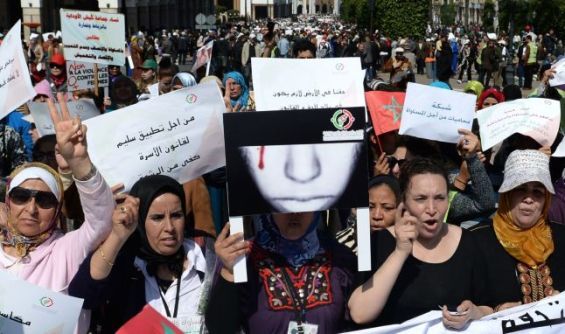Morocco's family code, the Moudawana, is undergoing yet another transformation. In 2022, King Mohammed VI called for a complete reform, marking another chapter in the evolution of rules around marriage, divorce, and family life in Morocco.
A research paper by Dr. Nouzha Chekrouni, Senior Fellow at the Policy Center for the New South, and Dr. Abdessalam Jaldi, Senior International Relations Specialist, traces these changes.
Before Morocco gained independence, Islamic law (Sharia) was the primary source for family rules. Courts relied on Sharia to rule on issues like marriage, divorce, and inheritance.
By 1957, the first Family Code was established. King Mohammed V tasked a commission to examine the existing code and propose reforms «to make it consistent with the values of justice and equality». This new code attempted to balance Islamic traditions with modern needs, granting women some additional rights.
Under King Hassan II's reign, a new wave of reforms began. In 1993, a significant change allowed women over 18 to marry without permission from a male guardian. Reforms also established that a judge must pronounce divorce after failed reconciliation attempts, with husbands remaining financially responsible for their families.
The 2004 reforms: A step towards equality
Just a few years after King Mohammed VI ascended the throne, new reforms to the Moudawana were introduced in 2004. These changes aimed to better align the code with international standards while respecting Islamic principles. This reform was seen as a major step towards gender equality.
The researchers note that the 2004 Family Code «enshrined equality between spouses, with a shared responsibility for the family», unlike the previous text that subordinated women under the principle of «obedience in return for maintenance».
However, the 2004 text still incorporated some aspects of the classical Muslim tradition that may not fully converge with principles of gender equality and children's rights. This is particularly evident in areas like marital interpersonal rights and property rights.
Calls for further reform
Despite past reforms, some believe the Family Code remains outdated and needs to reflect the realities of modern Moroccan life.
While some inheritance laws might still favor men over women, the code might not be strong enough in protecting children's rights, particularly regarding child custody arrangements and paternity establishment. Clearer procedures for determining paternity are crucial for child support and inheritance rights.
Furthermore, the code could be reviewed to ensure equal rights and opportunities for both men and women when getting married or divorced. An example is the ban on marriage between female Moroccan citizens and non-Muslims, which researchers argue violates the constitution's guarantee of equal rights and freedoms.
King Mohammed VI's call for a complete review in 2022 suggests the government is open to significant changes. Researchers believe legal experts might utilize comparative law to identify areas for improvement in Morocco's Family Code.
Another key consideration is «reinventing Ijtihad» (independent reasoning) in Islamic law. This collaborative effort between religious institutions and academia could bridge the gap between conservative and modernist interpretations of Islamic law, with a focus on empowering women.
Finally, extra-judicial dispute resolution mechanisms like mediation and conciliation can play a crucial role in resolving family conflicts. However, the current legal framework may not adequately support these mechanisms.
Establishing a well-structured and independent mediation system, with Family Council support, could offer couples a means to amicably resolve their differences.





 chargement...
chargement...












